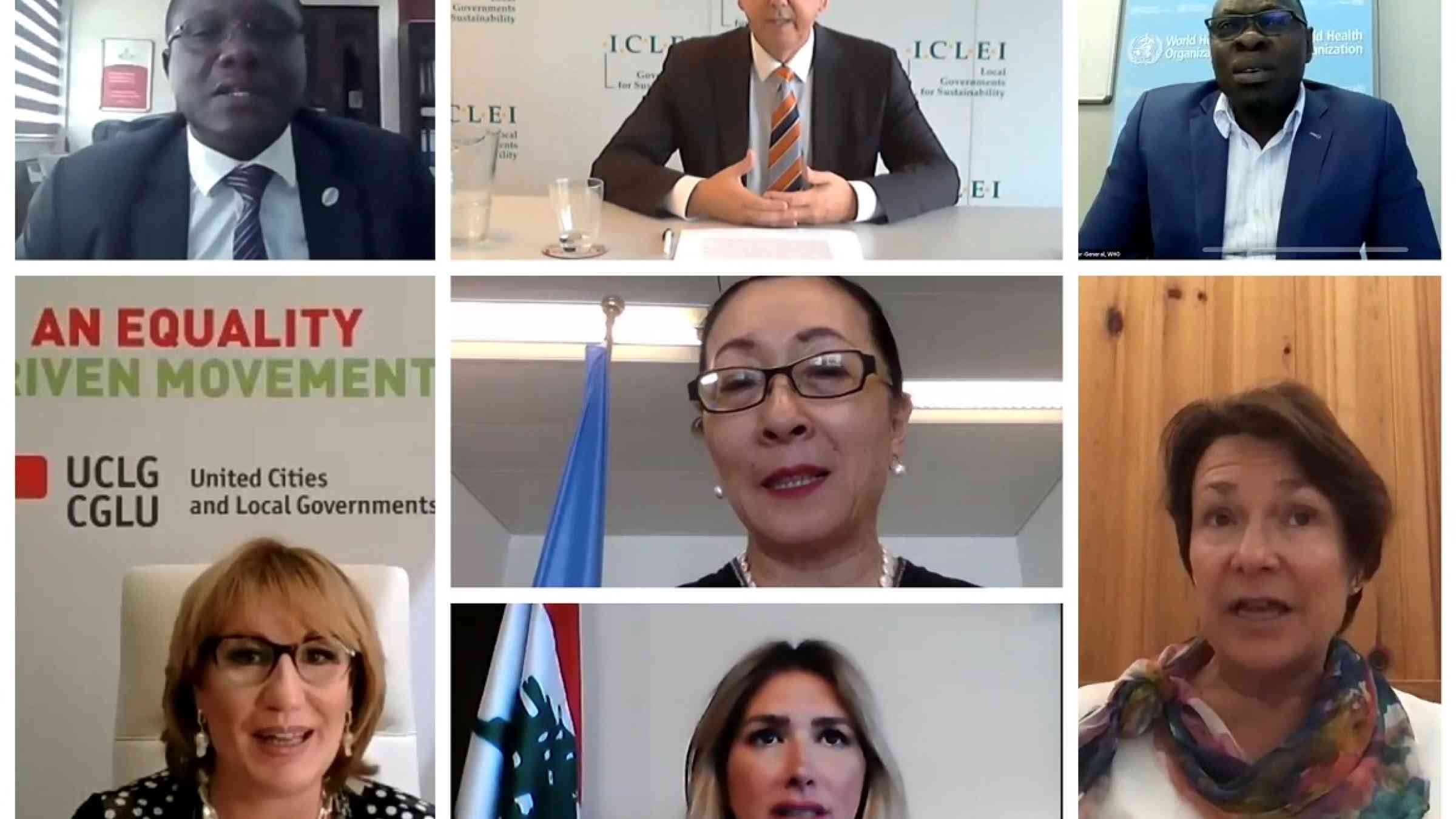COVID-19 trigger to re-examine resilience

The urban experience of COVID-19 is “a trigger for us to re-examine the meaning of local resilience,” said Mami Mizutori, Special Representative of the Secretary-General for Disaster Risk Reduction in a webinar with cities and local government representatives.
Emilia Saiz, Secretary-General, United Cities and Local Governments (UCLG) agreed and said that the pandemic “has put a magnifying glass on many of the gaps that we knew existed but it is above all challenging a lot of our perceptions and a lot of our models. Many of us thought that we could not stop the economies and we have done it. Many of us thought that there was a part of the planet that was protected from catastrophe and that is no longer the case. “
Ms. Saiz said that “the current crisis was asking us to rethink the concept of resilience. Resilience has a different space now on the international agenda… we need to go away from a model of where growth is the main way to measure our progress.”
Ms. Mizutori stressed the importance of disaster risk governance as UNDRR and partners including UCLG,ICLEI, UN Habitat and World Bank and prepared to launch a new phase of the Making Cities Resilient Campaign later this year, known as MCR2030.
Ms. Mizutori highlighted the importance of growing the campaign beyond its current membership of 4,326 and coming up with finance solutions that will help local governments to cope with expected shortfalls in revenue of up to 25% this year.
Ms. Saiz acknowledged that public service delivery is under huge stress and said that the campaign needed to go beyond considering cities as buildings to consider concepts such as inter-generational solidarity, equity, dignity and continuity of models for public service.
They were speaking in the webinar “COVID-19: Responding, Re-opening and Recovery Towards Resilience of Cities,” moderated by Sanjaya Bhatia, head, UNDRR Office for Northeast Asia and the Global Education and Training Institute.
Gino Van Begin, Secretary-General of ICLEI, said the pandemic had opened a debate on public ownership of critical services, the decentralization of food and energy production and a discussion on multi-level governance and management of public services.
Mr. Van Begin said a key objective of recovery is to restore economic activity “without simply restoring the old patterns of environmental degradation and inequality.”
He added that “In line with SDG 3 on good health and well-being, all countries need to strengthen their capacity for early warning, risk reduction and management of national and global health risk.”
“Resilience is more important than ever, and all stakeholders should work together to build back better through low-emission, green, nature-based solutions that promote equity and social justice,” Mr. Van Begin concluded.
Dr. Ibrahima Soce Fall, Assistant Secretary-General for Emergency Response, WHO, said that cities are at the forefront of strategic prevention, preparedness, readiness, response and recovery.
“We must use the opportunity of this crisis to make sure that we accelerate countries capacity and preparedness for response,” he said. At the same time, the threat of other public health emergencies have to be managed.
Dr. Fall urged cities to take a phased approach to scaling back measures against COVID-19 and recognise the unique dynamics at play in an urban environment and emphasized the need for “robust risk communication and community engagement.”
Speaking from Kampala, the Uganda capital’s Acting Deputy Executive Director, Samuel Sserunkuma, said the city was transiting to a ‘new normal” which allowed a return to economic activity.
Mr. Sserunkuma said: “This is an opportunity to shape new and innovative policies and strengthen health systems, improve social protection, pursue climate-friendly solutions, and continue on the pathway towards resilience.”
The webinar also heard from Iman Rafii, sub-Governor of Zgharta District in north Lebanon, who explained the challenges of managing the COVID-19 response against a backdrop of protests against poor living conditions.
Ms. Rafii said that committees were established in most municipalities in the north of the heavily urbanized country to carry out fast response plans. The experience to date “shows that in any future hazard or disaster or crises the municipalities are the forefront of preparedness and response and this shifts the way we think in the future.”
Birgitta Sacrédeus, Dalarna Regional Council, Dalarna, Sweden, and European Committee of the Regions, said it was impressive to see the solidarity that has emerged during the pandemic. Ms. Sacrédeus said that the digital explosion had enabled contact to continue with older persons in isolation and for institutions of the European Union to continue meeting and taking decisions.
The full webinar can be viewed through this link